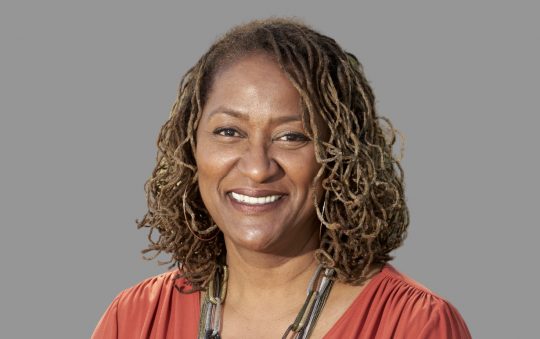
COVID-19 may have changed the landscape of how we move about our daily lives, but for many medical professionals, it’s a chance to put their expertise into action. Tierra Norman is a registered nurse and department administrator over the Critical Care Unit at Kaiser Permanente West Los Angeles. She spoke with the Sentinel about how she chose nursing as a profession, her daily routine and life after COVID-19.
Born and raised in Los Angeles, CA, Norman spent her teens in Inglewood and attended George Hale Middle School and El Camino Real High School. She furthered her education at El Camino Community College and received her Bachelor of Science degree in nursing from Western Governors University. She shared how the nursing profession has always been an influence, as it runs in the family.
“My mom’s a nurse, so it’s in my blood, in my veins,” said Norman.
“I remember everything about nursing; that was all I was around. My grandmother, even though she wasn’t a nurse, she was a psychiatric tech; so there’s always been someone in the healthcare field that I’ve been around.”
Nurses work long hours and have multiple tasks to perform throughout any given day. Norman shares what makes nursing worthwhile and what she likes most about her job.
“I really enjoy seeing people get better,” said Norman. “It’s really sad that sickness is something that we’re going to always have around, but to be a part of someone getting better, that gives an inner satisfaction.
“It gives you a sense of purpose when you’re able to participate in someone getting better especially seeing them at their worse state.”
She said, “when the patients don’t get better,” is the challenging part about her job. She shared that nurses hope for the best and to do the best of their ability, but sometimes the outcome isn’t positive.
“Sometimes it causes you to doubt—especially when you see young or old [patients]; the family is affected by that, you wonder if you’ve done enough.”

The COVID-19 pandemic has taken its toll on medical professionals around the world. Nurses, who are the backbone of hospitals, clinics, and medical facilities, are essential. Norman shares her schedule before and after COVID-19.
“I come in, I huddle with my staff, day-and-night shift; we talk about the operation of the unit, any positives, any updates—the normal stuff.
She continued, “In between, we’re addressing the patient concerns that may come up, any employee concerns and of course, the meetings, scheduling, things of that sort—that was pre COVID-19.”
She shared that COVID-19 didn’t alter her daily schedule, but added more to it. Now, Norman must make sure she is applying day-to-day updates on procedure and protocol concerning the virus and make sure staff is aware.
“It’s all those things plus more,” said Norman.
“We’re making sure we’re implementing processes that are not only keeping the patients safe, [but] the family [and] staff safe. We want to make sure that any process that we’ve implemented are being followed through.
Norman continued, “Making sure I have more presence in the unit because, even though they’re a lot of processes we have in place, we also have to be concerned about the mental and emotional state of our staff, because this is hard for them too.
“They’re not only dealing with patients in the hospital, but they’re also dealing with their personal fears and anxieties that they’re trying to keep leveled out and also stay present for the patients they’re taking care of and their families.”

Norman said it’s “all-hands-on-deck” and making sure on a daily basis that she is working closely with infection prevention at Kaiser West L.A., the CDC and that staff are up-to-date on the latest information.
Recently, multiple states started to ease quarantine restrictions and many have begun to go back to work and play. Most of L.A. County is still under “shelter-at-home” even though some are foregoing the suggestion and even, rebuking, social distancing in some instances. Norman shared what people can do to remain safe if they choose to return to business as usual.
“If you’re not feeling well, you need to stay indoors, stay home, take care of yourself, take care of your family and cardinal rule of nursing: washing your hands—you can never do enough hand washing.”
She added,” Educating yourself [and] staying up-to-date with information, so even if the guidelines, the shelter-in orders are lifted, we still want to wear our masks, if that’s still the direction from the CDC, you still want to do those basic things—covering your mouth when you cough, cover your nose and mouth when you’re sneezing, things like that.”
Norman and countless nurses around the world are working hard to keep people alive, safe and healthy during this pandemic. Thank you is almost an understatement for the sacrifices they’re making, but it’s part of the job and Norman has chosen that responsibility. She wanted to share some advice with the community during this unsettling time.
“We’ll all get through this together,” said Norman. “It’s been a while since we’ve had a pandemic of this kind, but I think that as long as we stay abreast of the situation, as long as we are following guidelines and caring enough about each other as a community to contribute to not spreading [COVID-19], I think we’ll definitely get through this together.”







